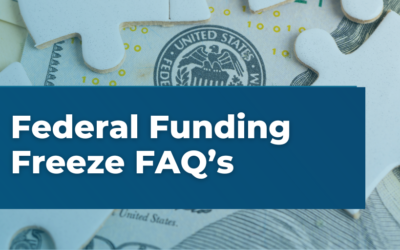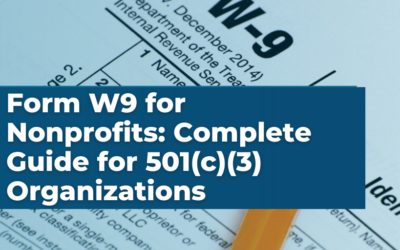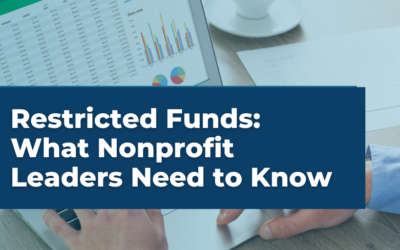Tax season often brings about a flurry of paperwork, uncertainty, and more than a few questions, particularly for independent contractors. One of the key tax forms independent contractors should be familiar with is the 1099 form. Understanding what a 1099 form is, how it affects your taxes, and what to do when you receive one is essential to managing your financial responsibilities effectively and efficiently. In this guide, we’ll break down everything you need to know about 1099 forms.
Why Did I Receive a Form 1099?
Simply put, if you’re an independent contractor who has earned $600 or more from a business or individual during the tax year, you’ll likely receive a 1099 form. This form serves as a record of the income you received. It’s important to note that even if you don’t receive a 1099 form (for various reasons we’ll cover later), you’re still legally required to report all of your income to the IRS.
Does the IRS Receive My 1099?
Yes, the IRS does receive a copy of your 1099 form. When a business or client pays you $600 or more in a year, they’re required to complete a 1099 form. One copy is sent to you, and another is sent to the IRS. This way, the IRS is aware of your reported income, ensuring it matches the amount you declare on your tax return. Therefore, it’s crucial to report all your income accurately, regardless of whether or not you receive a 1099 form. Discrepancies between the income reported by the business and the income you declare could lead to audits and potential penalties.
How Does Form 1099 Affect Independent Contractor Taxes?
Unlike regular employees who have taxes withheld from each paycheck, independent contractors are responsible for setting aside money for their own taxes. Your 1099 form aids in determining how much you owe.
Knowing that a 1099 form is essential to your taxes, it’s a good practice to print a 1099 form pdf for your records or download and save a digital copy. This way, you’ll always have a backup in case of any discrepancies or inquiries.
Understanding the Different Types of 1099 Forms
There are several types of 1099 forms, but for independent contractors, the most relevant is typically the IRS 1099-NEC form. “NEC” stands for “non-employee compensation,” which perfectly describes the earnings of an independent contractor. This form reports the amount a company has paid you throughout the tax year.
While the 1099-NEC is likely to be the most common form you’ll encounter, there are others, such as the 1099-MISC (Miscellaneous Income), which covers payments for things like royalties or rents. Understanding which 1099 form you have and what it represents is the first step toward accurate tax filing.
Key Differences Between a 1099 and W-2
The primary distinction between a 1099 and W-2 lies in your employment status, tax obligations, and benefits:
- Employment Status: W-2 forms are for full-time or part-time employees, while 1099 forms are for independent contractors, freelancers, or self-employed individuals.
- Tax Withholding: Employers withhold income tax, Social Security, and Medicare taxes for W-2 employees, reflecting these deductions on the W-2 form. Conversely, 1099 recipients are responsible for their own income tax and self-employment taxes, as their earnings aren’t subject to withholding. You should expect to pay more in taxes when receiving a 1099.
These differences have significant tax implications, so understanding your employment status and its associated responsibilities is crucial for accurate tax reporting and planning.
Tips for Organizing Your 1099 Forms and Paperwork
Staying organized is crucial when managing multiple 1099 forms. Develop a system that works for you. This might involve creating a dedicated folder in your file cabinet for physical forms and a corresponding folder on your computer for digital copies. Remember, 1099 forms are printable, and having a physical copy can often be helpful.
Another key tip is to track your expenses meticulously throughout the year. As an independent contractor, you may be eligible to deduct certain business expenses, potentially lowering your overall tax liability. Keep records of any purchases made for your business, miles driven for work, home office expenses, and more.
What if I Did Not Receive a 1099 Form?
While businesses are required to send 1099 forms to any independent contractor, they pay $600 or more, mistakes can happen. If you don’t receive your 1099 form, reach out to the business promptly. Remember, even without a 1099 form, you must report all income to the IRS.
What If My 1099 is Incorrect?
If you receive a 1099 form and the information is incorrect, it’s important to address the issue promptly. The first step is to contact the client or company that issued the form and request a corrected version. Whether the error is in your personal information or the income amount, a corrected form is necessary to avoid potential tax complications.
Remember, a copy of the 1099 is sent to the IRS, so discrepancies can cause issues with your tax return. Therefore, ensure you receive a corrected 1099 form before filing your taxes. If you’re having trouble getting a corrected form, or you’re not sure how to proceed, consider seeking professional tax advice.
Deadlines for Filing 1099 Forms
The business or person who has paid you has until January 31 to provide you with your 1099 form. However, you should start preparing for your tax filing as soon as the new year begins. The deadline for filing taxes typically falls on April 15, although there may be extensions available in certain circumstances.
Conclusion and Final Thoughts
Navigating the world of 1099 forms may seem intimidating, but with a clear understanding and a bit of organization, you can simplify the process greatly. Remember, the 1099 form is a critical part of your tax preparation and should be handled with care.
If you still have questions, are uncertain about your tax responsibilities, or simply prefer to have a professional guide you through the process, don’t hesitate to reach out. Our team of seasoned professionals are here to offer personalized advice tailored to your unique circumstances. Contact us today for assistance with all your tax needs. We’re dedicated to providing solutions that make your financial journey smoother and less stressful.





